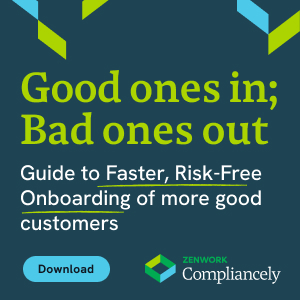Why Identity Verification Matters

Contrary to popular belief, identity verification is no longer a sophisticated requirement for businesses. In fact, it has become one of the most basic requirements to lubricate the functions of an organization.
When we look at the KYC and customer identification procedure, identity verification plays an intricate role in defining the organizational structure of an ecosystem. It helps businesses prevent associating with, in laymen’s terms, unverified or un-validated profiles.
These profiles could be individuals or entities. And considering the problematic trends in identity fraud, identity verification is the only damage-control measure on which business ecosystems can rely.
Today, we’re going to look at how identity verification matters in a world of uncertainty and how it helps businesses verify real identities, making it critical for assessing the risk quotient of an incoming profile.
What Is Identity Verification
Identity verification is the process of validating the identities of an individual or an entity against the authorized identity records. These authorized records could be government data lists or other data lists that hold validity and credibility from an enforcement viewpoint.
Verifying a person’s identity will help you learn if a person’s identities are in accordance with the authorized records. For example, anybody can claim anyone’s identities. What stops this from transgressing into an identity fraud case is the point of verification, which validates and checks the accuracy of the identities claimed and the identities available in the social security databases.
Identity verification helps you understand the risk quotient and credibility spectrum of a profile, making it a critical element in due diligence procedures.
Purpose Of Identity Verification
According to the European Union’s AMLD 5, identity verification (which is a part of the KYC verification process) allows you to verify the identities of an individual or an entity that intends to establish and maintain a legal relationship with you.
It helps create a foundational relationship with the profile and helps you document valid proof to verify the credibility further, and cross-validate the identity claims.
Essentially, identity verification helps you prevent risk and implications associated with identity fraud.
How Identity Verification Impacts You
Identity verification impacts every single entity and being on the planet. Every person and entity that comes into existence is given a formal identity.
For people, it’s the name, social security number, date of birth and death, nationality, and more are the accepted forms of identity. For entities, it’s the Entity Identification Number, date of incorporation, geographical presence, panel members, and more.
These elements are viewed as factors of identification, helping you identify, validate, and verify the existence and credibility of a profile, globally.
For example, if you want to know the IRS TIN Match status of an entity, you will essentially check the entity’s TIN and legal name – the assigned, valid, and legal identities of the entity.
Similarly, if you want to learn about the identities of a person, you will validate it with the social security number and legal name of the individual – the assigned identities of the individual.
Now, these elements of identification are used in a variety of scenarios to validate and verify the credibility of a profile. For example, loan applications, insurance approvals, government grant approvals, unemployment benefits, independent contractor payments, and so on.
If you want to check if/when a person or an entity has been issued economic sanctions by the U.S., then you can check the identities of the person in a variety of federal data lists, such as OFAC watch list, Specially Designated Nationals list, Restricted Entities List, and more.
But the scope of verification differs with each use case, making identity verification a dynamic tool of substance.
What sets identity verification apart from basic “background screening” is that it enables you to utilize its power in accordance with the scope of your investigation. There is no limit to identity verification. However, these investigations must be carried out within reason and feasibility.
Identity Verification: The Question Of Reliability
While the investigation or validation of identities is one side of the coin, the reliability of the results is another. The reliance is dependent on the source of identity validation. If you’re validating the identities against a government-authorized data list, say Social Security Administration, then most likely, your identity investigations will lead you to the right decision.
On the other hand, unverified sources of information and historic data lists can slow down your investigations or identity validation procedures. Additionally, inconsistent data from various sources could overturn your efforts.
Regulatory compliance protocols advise enterprise industries to rely on authorized data lists regulated by the state or federal agencies to drive the identity validation processes.
If you’re looking for a really simple identity verification solution that would help you verify profiles on the go in real-time, then give Compliancely a fair try.

